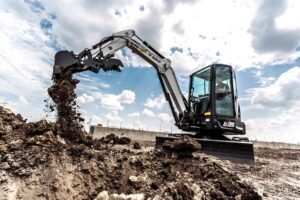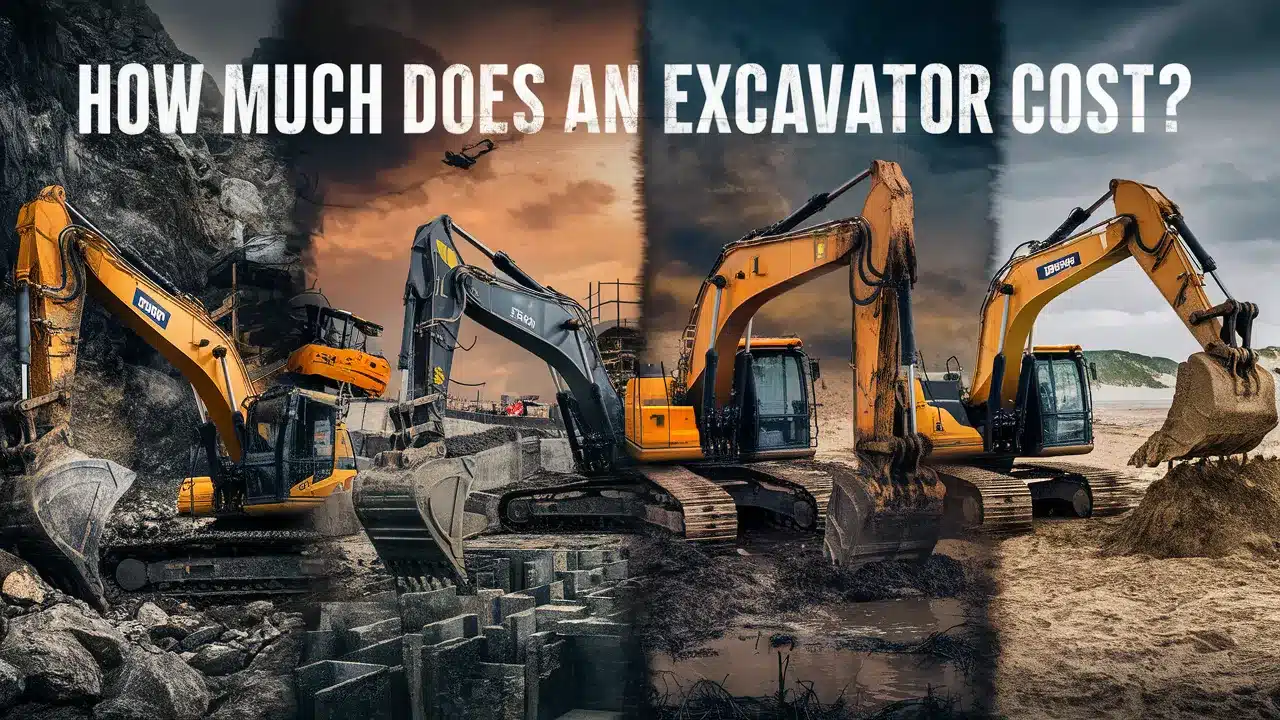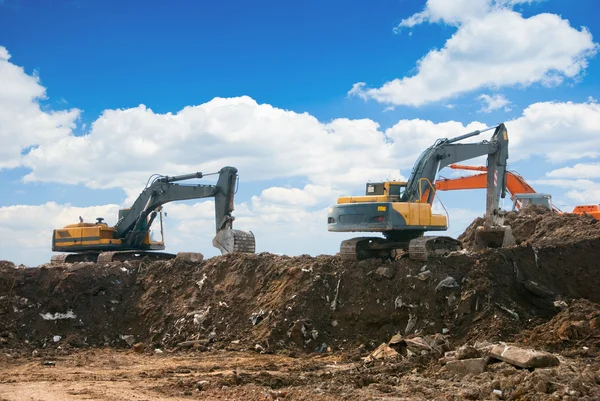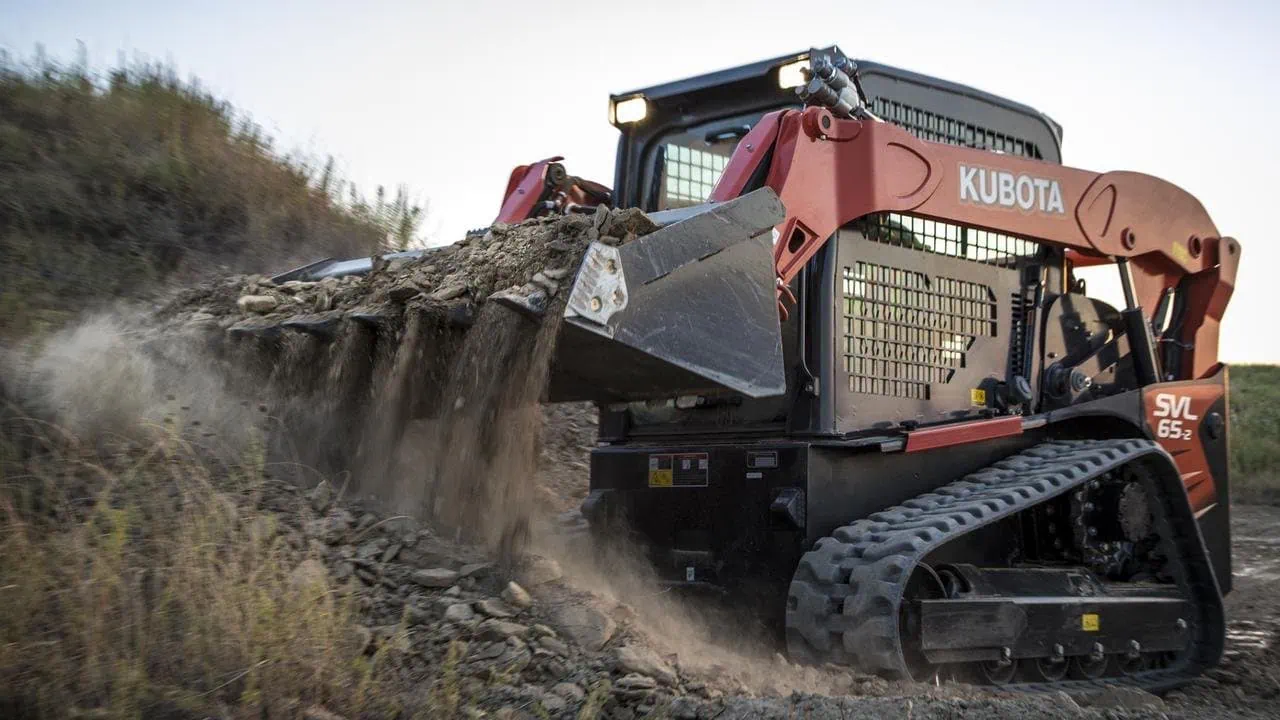Table des matières
BasculerIntroduction
Safety is crucial for construction workers when using wheel loaders. Learning how to operate these machines safely is important. This article focuses on training and safety for using used wheel loaders. Knowing how wheel loaders work and the risks involved is key.
Regulations and rules tell us how to be safe, but it’s important to understand them well. Doing checks before using the machine can help find problems and prevent accidents. Training teaches us about the machine’s controls, how to move it, and what to do in emergencies. Following safety tips helps keep everyone safe at work.
Regular maintenance also keeps wheel loaders working well. By always focusing on safety and learning more, workers can make construction sites safer places to work.
Why Is Operator Training Crucial for Used Wheel Loaders Operation?
Understanding Safety Risks
Learning how to operate wheel loaders safely is very important. Without proper training, it can be dangerous. Training helps operators know about the risks and how to avoid accidents.
Controlling the Equipment
Training teaches operators how to use the controls of the wheel loaders. This helps them handle the machine well and prevent accidents.
Preventing Accidents
If operators aren’t trained, they might not know what to do in emergencies or how to stay safe on the worksite. Training gives them the knowledge to prevent accidents and keep everyone safe.
Checking Before Use
Before starting work, operators must check if the wheel loaders are working properly. Training shows them how to do these checks to avoid problems.
Following Safety Rules
During training, operators learn important safety rules. These include understanding what the wheel loader can and can’t do and how to stay safe while using it.
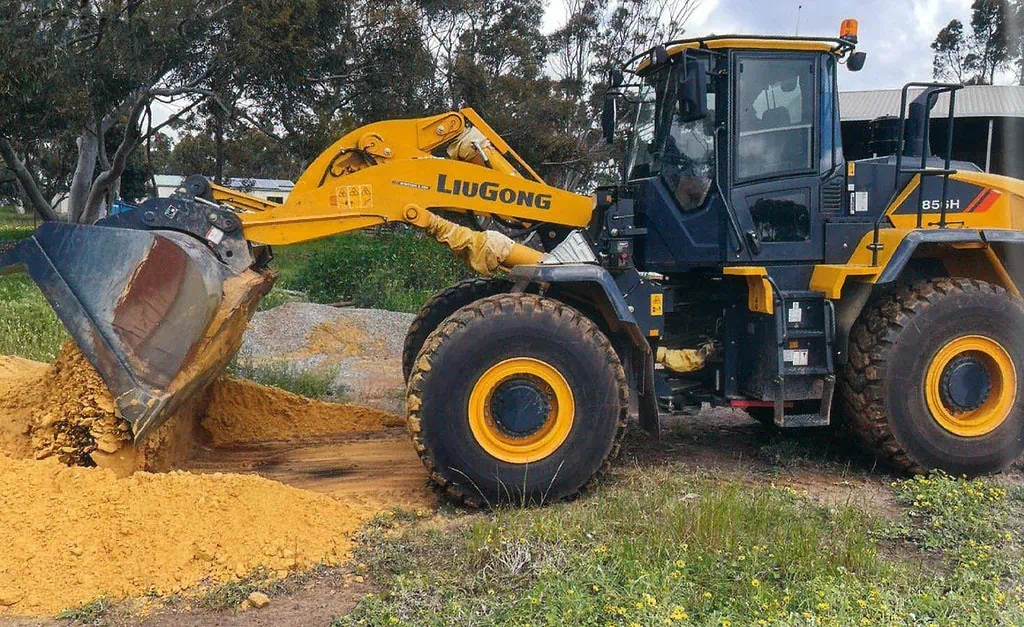
What Components Make Up a Wheel Loader and How Are They Utilized?
Chassis
The chassis is like the skeleton of wheel loaders. It gives the machine its shape and strength, keeping everything together.
Engine
Think of the engine as the heart of wheel loaders. It provides the power needed to move and lift heavy stuff.
Transmission
The transmission helps control how fast the wheel loader goes and which way it moves. It’s like the brain of the machine.
Hydraulic System
This system uses fluid to lift and lower the bucket, making it move smoothly.
Bucket
The bucket is like a giant scoop attached to the front of the wheel loaders. It’s used to pick up and carry materials around.
Tyres
Tires are what keep the wheel loader moving on different surfaces. They grip the ground and help the machine stay stable, even when carrying heavy loads.
What safety regulations and standards govern the use of wheel loader operation?
There are rules and standards to keep everyone safe when using wheel loaders on construction sites.
Occupational Safety and Health Administration (OSHA)
OSHA makes sure workplaces are safe. They have rules for using big machines like wheel loaders, including how to train and operate them safely.
American National Standards Institute (ANSI)
ANSI sets standards for different industries, like construction. They say equipment like wheel loaders should be made, maintained, and have safety features.
Manufacturer Guidelines
The companies that make wheel loaders give guidelines for using them safely. Operators should follow these to avoid accidents and keep the machine in good condition.
Best Practices
In addition to official rules, there are best practices from experienced workers. These tips help operators use wheel loaders safely and efficiently.
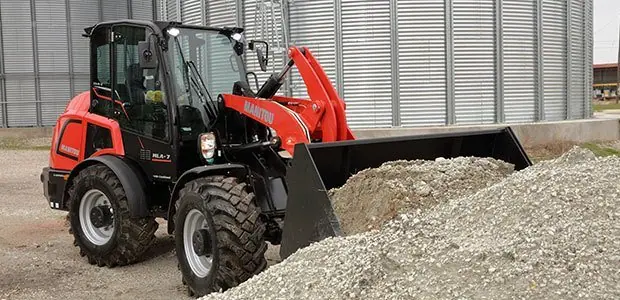
What Risks and Hazards Should Operators Be Aware Of?
- Tip-Overs: Wheel loaders can tip over if not handled carefully, especially when carrying heavy loads or driving on rough terrain.
- Falling Objects: Materials in the bucket might fall out, hurting people nearby. Operators need to make sure everything is secure before moving.
- Limited Visibility: It’s hard to see what’s around the wheel loader, especially behind and to the sides. This can cause accidents if operators aren’t careful.
- Pinch Points: Moving wheel loader parts can catch fingers or hands if operators aren’t paying attention.
- Mechanical Problems: If the wheel loader isn’t properly maintained, it might break down unexpectedly, causing accidents or delays.
- Collisions: Wheel loaders might crash into other vehicles or people on the site, causing injuries or damage.
How Should Operators Conduct Pre-operation Inspections?
- Check the Exterior: Look for visible damage, leaks, or loose parts outside wheel loaders.
- Inspect the Tires: Check for wear, damage, or low-pressure signs. Ensure the tyres are properly inflated and in good condition.
- Test the Lights and Signals: Turn on lights and signals to ensure they’re working correctly for visibility on the worksite.
- Check Fluid Levels: Verify adequate oil, coolant, and hydraulic fluid levels. Add more fluid if necessary.
- Test the Brakes: Ensure brakes are working properly to ensure safe stopping when needed.
- Check the Controls: Test all controls, including steering, lifting, and bucket controls, to ensure they respond correctly.
- Review Safety Features: Ensure all safety features like seat belts and emergency stop buttons function properly.
What Does Comprehensive Operator Training Encompass?
Comprehensive operator training teaches everything needed to use wheel loaders safely and well.
Getting to Know the Equipment
Operators learn about all the parts of wheel loaders and how they work together. This includes understanding how to use the controls correctly.
Operating Safely
Training shows operators how to use the wheel loader safely. This includes loading and unloading stuff, driving carefully, and staying stable on different surfaces.
Dealing with Emergencies
Operators learn what to do if a machine breaks or there’s an accident. They learn to stop the machine safely and talk to others on the site.
Basic Maintenance
Training covers keeping wheel loaders working well, like checking and cleaning fluids.
Knowing the Rules
Operators learn about the safety rules and laws for using a wheel loader. They understand what they must do to keep everyone safe and follow the rules.
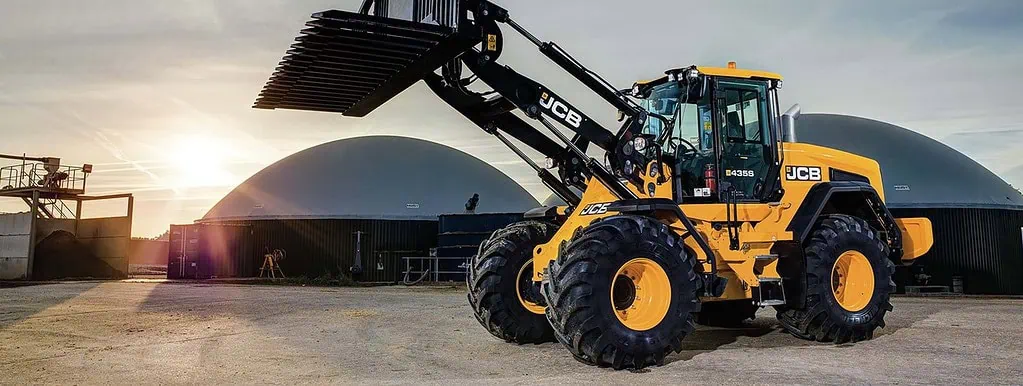
What Are the Best Practices for Safe Operation?
Some of the best practices for safe operation are given below
- Keep a Clear View: Check mirrors and blind spots before moving.
- Use Seat Belts: Always wear seat belts for safety during operation.
- Communicate Effectively: Use hand signals or radios to communicate with others.
- Watch Your Speed: Drive safely, especially on uneven ground.
- Secure Your Load: Ensure materials are properly secured before moving.
- Avoid Dangerous Areas: Stay away from steep slopes and unstable ground.
- Regular Maintenance: Perform regular checks on fluids, tyres, and brakes.
How Should Operators Respond to Emergencies?
In emergencies, operators must act quickly and calmly to ensure their safety and that of others.
Stop the Machine
If something goes wrong, stop the wheel loader immediately. Turn off the engine and engage the parking brake to prevent further movement.
Assess the Situation
Take a moment to assess the situation and determine the extent of the emergency. Check for any injuries or hazards that need immediate attention.
Communicate
Use radios or shout to alert nearby workers about the emergency. Clear communication helps everyone understand what’s happening and how to stay safe.
Follow Emergency Procedures
Follow the emergency procedures outlined in your training. This may include evacuating the area, administering first aid, or contacting emergency services.
Stay Calm
Keep a level head and stay calm throughout the emergency. Panic can make situations worse and hinder your ability to respond effectively.
Why Is Regular Maintenance and Servicing Important?
Regular maintenance and servicing are crucial for keeping a wheel loader safely and efficiently.
- Keeps You Safe: Regular maintenance helps spot and fix problems before they cause accidents.
- Prevents Breakdowns: Checking the machine regularly stops it from suddenly breaking down, saving time and hassle.
- Makes It Last Longer: Taking care of the wheel loader means it will keep working well for longer, saving money in the long run.
- Keeps It Working Well: Servicing keeps the wheel loader running smoothly, so it does its job properly every time.
- Saves Money: Spending a little on maintenance now saves a lot on big repairs later. It’s like an investment in the machine’s future.
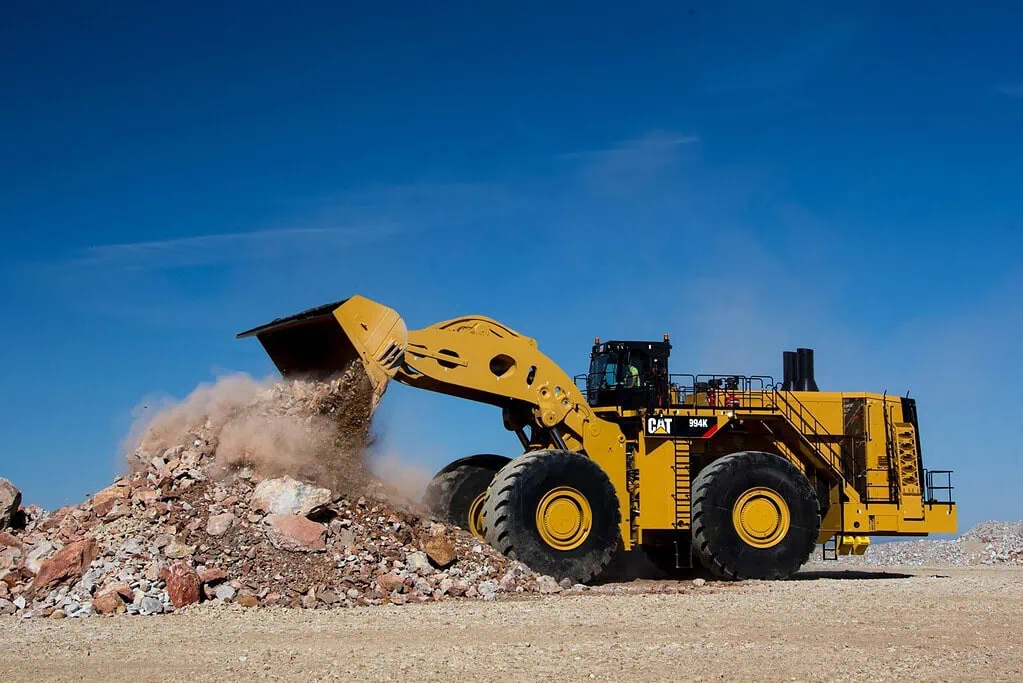
How Can Operators Maintain Ongoing Education and Training?
Attend Refresher Courses
Operators can revisit training courses to review and reinforce what they’ve learned. These courses help keep skills sharp and safety practices fresh.
Use Online Resources
Check out videos, articles, and webinars online. These resources are easy to access and cover new techniques and safety updates.
Participate in Workshops and Seminars
Attend workshops and seminars led by experts. These events cover various topics, including equipment operation and safety rules.
On-the-Job Training
Learn from experienced colleagues while on the job. Shadowing others and getting feedback helps improve skills and gain practical experience.
Join Professional Organizations
Join groups related to the construction industry. They offer networking opportunities, educational resources, and certification programs tailored to operators.
Read Industry Publications
Read magazines and publications to stay updated. They provide useful tips on equipment maintenance, safety, and industry trends.
Conclusion
Safety is the most important thing when using a used wheel loader. Getting the right training helps operators feel confident and avoid accidents on construction sites. Learning about the machine and following safety rules are key to safe operation.
Regular maintenance keeps the equipment in good shape. By focusing on safety and getting the right training, operators make construction sites safer for everyone. Accidents can be stopped with the right knowledge and precautions. Taking the time to learn and put safety first ensures a smoother and safer work environment.
FAQ
What Are the Safe Operating Procedures for Wheel Loaders?
Ensure proper training, wear seat belts, use signals, inspect regularly, avoid overloading, and communicate effectively.
What Are the Loader Safety Guidelines?
Follow training protocols, wear safety gear, use caution on slopes, maintain visibility, secure loads, and prioritize communication.
What Is a Wheel Loader Operator?
A wheel loader operator is trained to safely operate and maintain wheel loaders on construction sites.
Contactez-nous to purchase best used wheel loaders

